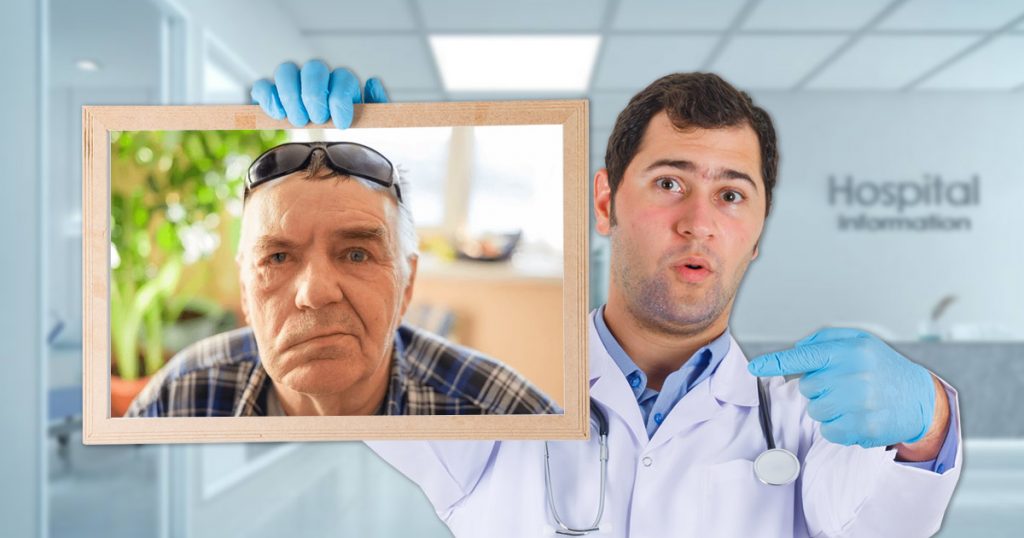Even after the global COVID-19 pandemic started to settle down, researchers are still uncovering surprising effects of the virus. One condition that caught attention is Bell’s palsy, which causes sudden facial paralysis. Could COVID-19 be responsible for triggering this nerve issue?
What is Bell’s Palsy?
Imagine waking up one day only to find that half of your face isn’t moving the way it should. That’s what people with Bell’s palsy go through. It happens when the nerve controlling your face muscles gets inflamed or pinched, causing one side of your face to droop or go numb. Some common symptoms are:
- Trouble blinking or closing one eye
- A droopy smile on one side
- Facial numbness
- Drooling from the mouth
- Jaw or ear discomfort
It comes on fast, usually in a day or two, and can be pretty unsettling. The good news? Most people start to feel better within weeks or months, although some can have lingering weakness.
While the exact cause isn’t fully understood, one big clue is that it often follows a viral infection. That naturally raises the question: Can COVID-19 trigger Bell’s palsy?
Is There a Bell’s Palsy and COVID-19 Virus Connection?
When COVID-19 was at its peak, there were reports of people developing unusual symptoms beyond the typical cough or fever. Some even experienced neurological issues, like facial numbness, droopy eyes, or other signs of Bell’s palsy.
A 2022 review found 46 reported cases where people developed Bell’s palsy during or shortly after testing positive for COVID-19. These cases were rare, but they got researchers thinking. Could the virus’s effect on the immune system be at play here? Experts believe it might cause an overreaction where your immune cells mistakenly attack your facial nerve, leading to swelling and pressure.
One person’s story shared in a study noted that their right side of the face went numb just a few days after testing positive for COVID-19. Stories like this highlight the need for more research to better understand the connection.
What About COVID Vaccines and Bell’s Palsy?
When COVID-19 vaccines first rolled out, there were early concerns about whether they could cause side effects like Bell’s palsy. During the clinical trials for the Pfizer and Moderna vaccines, a small number of participants did develop the condition. For example:
- Pfizer’s trial saw 4 cases among over 43,000 participants.
- Moderna’s had 3 cases out of 30,000 participants, plus 1 in the placebo group.
It’s a tiny number, but because Bell’s palsy was reported more in the vaccinated group than in the placebo group, scientists started keeping an eye on it. Thankfully, follow-up studies showed that the risk of Bell’s palsy from vaccines isn’t higher than it is from other vaccines, like flu shots.
Here’s the important part, though. Research found that catching COVID itself makes you three times more likely to develop Bell’s palsy than the vaccine does. Think of it this way: the vaccination may come with super rare side effects, but it’s still the safer bet compared to battling the virus head-on.
Could COVID Cause Paralysis Beyond Bell’s Palsy?
Bell’s palsy isn’t the only nerve-related issue linked to COVID-19. Rare conditions like Guillain-Barré Syndrome (GBS), where your immune system attacks your nerves, have also been reported. Some people recovering from COVID have also experienced temporary numbness or tingling in their face or limbs.
Still, these cases are few and far between. If you’ve noticed symptoms like a weak smile on one side of your face or a “COVID droopy eye,” it might be worth checking in with a doctor to rule out anything serious.
What to Do if You Suspect Bell’s Palsy
If you wake up to unexpected facial changes, don’t panic! Bell’s palsy isn’t life-threatening, but it’s a good idea to see a doctor ASAP. The earlier you get treatment, the better your recovery chances. Here’s what might help:
- Steroids: They reduce inflammation and work best when taken within 72 hours of when symptoms start.
- Eye Care: Since one eye might not close properly, using eye drops or a patch can prevent dryness or irritation.
- Physical Therapy: Gentle exercises or massages can help strengthen those face muscles again.
The best part? Most people with Bell’s palsy recover fully with time, so stay optimistic!
Stay Informed, Stay Healthy!
Learning about rare conditions like Bell’s palsy can feel a little overwhelming, but here’s what can give reassurance. The chances of developing it from COVID or the vaccine are extremely low. Plus, if you keep up with your health, consult a doctor early, and prioritize treatments, the outlook is generally great.
The data shows vaccines remain a safer choice compared to risking severe complications from an actual COVID-19 infection. Knowing this can help us make more informed decisions while keeping our nerves (pun intended) in check. And if nothing else, remember that being proactive about your health is always a step in the right direction. Stay well!
